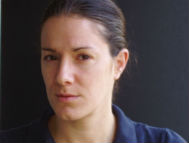
Michal Tsur is without a doubt one of the inspirational trail blazers of today’s tech world, embodying the ideals of Israeli innovation (that have earned Israel its nickname as the ‘Startup Nation’) in more than one highly successful business endeavor. Moreover, she has proven it could all be done by a woman with apparent ease no less, in an industry that has up until only recently been infamously known as a male-dominated playing field.
 Surprisingly enough, Michal made her entrance into the tech world in 1999 as co-founder of the anti-fraud security company, Cyota, with Amir Orad and Naftali Bennett (currently Israel’s Finance Minister), which was later acquired by RSA Security, with relatively little knowledge of the “techy” side of the business. In her 2013 interview with No Camels, Michal readily admitted to never having written code at all, stating, “I’ve never written code, so I would say that there are different roles that you can play in organizations, and mine would probably be understanding their business requirements.” But don’t let her lack of coding skills mislead you to believe her a lightweight; Michal holds a doctoral degree in application of game theoretic models to law from New York University, and was a post-doctoral fellow at Yale Law School’s Information Society Project where her research focused on Open Source, Memetics, and evolutionary game-theory. Suffice to say her success is no matter of chance or dumb luck.
Surprisingly enough, Michal made her entrance into the tech world in 1999 as co-founder of the anti-fraud security company, Cyota, with Amir Orad and Naftali Bennett (currently Israel’s Finance Minister), which was later acquired by RSA Security, with relatively little knowledge of the “techy” side of the business. In her 2013 interview with No Camels, Michal readily admitted to never having written code at all, stating, “I’ve never written code, so I would say that there are different roles that you can play in organizations, and mine would probably be understanding their business requirements.” But don’t let her lack of coding skills mislead you to believe her a lightweight; Michal holds a doctoral degree in application of game theoretic models to law from New York University, and was a post-doctoral fellow at Yale Law School’s Information Society Project where her research focused on Open Source, Memetics, and evolutionary game-theory. Suffice to say her success is no matter of chance or dumb luck.
…knowledge… might on some occasions be too much of a good thing: in a competitive and entrepreneurial environment it can act as a deterrent for innovation.
And when it comes to developing a startup, an outside approach can be exactly what is needed to succeed. It her Open Technology blog, Michal (and Leah Belsky) wrote, “It seems to us that when starting a new startup in a particular industry, ignorance about that industry provides an advantage and raises the likelihood of starting a successful company. Having deep knowledge and familiarity with an industry serves to de-motivate innovation. Familiarity with an industry means that you know all path dependencies, existing technological challenges, structural constraints, competitors, and hurdles, all of which are a good reason NOT to start a new company. Hence, knowledge, which is indeed power, might on some occasions be too much of a good thing: in a competitive and entrepreneurial environment it can act as a deterrent for innovation.”
On being a woman in the industry: “You very quickly become aware of your strengths and the ways you may think, manage, and operate differently from others on the team.
Since her successful start with Cyota, Michal has been on a roll, contributing her talents to different projects and start-ups, marrying and having three children, all the while maintaining her hobby of triathlons! She has been very inspirational for women looking to bridge the gender gap in the industry. And she certainly has experience and wisdom to share. Tsur encourages women who are interested in the field to jump in, saying that tech is a good place for women, offering the potential for flexible hours, telecommuting, and nontraditional work cultures. In an interview with Forbes Magazine, Tsur said that for her, being a woman in the tech industry has been empowering, “It can be exciting and energizing. You very quickly become aware of your strengths and the ways you may think, manage, and operate differently from others on the team.”
 Currently, Michal is co-founder and president of Kaltura, an open source video platform which powers video management, publishing, syndication and monetization solutions for media companies, universities and enterprises. Kaltura’s open source video platform is now used by more than 150,000 businesses worldwide, including Wikipedia, Fox, HBO, Warner Brothers, Paramount, Stanford, NYU, Princeton, the Times of India, and Groupon. Kaltura is a prime example of what drew Michal to the tech industry in the first place – “the idea, the opportunity to create change in the world, to disrupt an industry, to build something new, and to have fun.” According to Michal, “Technology was merely the tool needed to execute our ideas.”
Currently, Michal is co-founder and president of Kaltura, an open source video platform which powers video management, publishing, syndication and monetization solutions for media companies, universities and enterprises. Kaltura’s open source video platform is now used by more than 150,000 businesses worldwide, including Wikipedia, Fox, HBO, Warner Brothers, Paramount, Stanford, NYU, Princeton, the Times of India, and Groupon. Kaltura is a prime example of what drew Michal to the tech industry in the first place – “the idea, the opportunity to create change in the world, to disrupt an industry, to build something new, and to have fun.” According to Michal, “Technology was merely the tool needed to execute our ideas.”
Research in this field now confirms that video is better than the written word when it comes to information retention.
And those ideas are taking their place and proving their worth, as multimedia evolves and is rapidly turning into a fundamental aspect of communication and representation. In fact, research in this field now confirms that video is better than the written word when it comes to information retention. This may not come as a surprise to anyone familiar with the internet, but it is, nevertheless, impressive evidence of the growing impact of multimedia in every field. Kaltura recently published the inaugural State of Video in Education report in which more than 500 educational professionals from across 300 institutions unanimously agreed that video has the potential to create a real impact on education. Respondents — who ranged from senior administration leaders to instructional design professionals — noted that video can:
- Change the way students learn
- Boost attendance
- Create stronger alumni relations
- Increase the chances for success
- Influence learning outcomes and the overall student experience
Some of the study’s other major findings: One respondent went as far as to say teachers will “have to” produce multimedia instructional content in order to bridge the gap between online and offline meetings.
- 81 percent of respondents agree that online learning will grow in prominence and underpin the award of a large number of degrees going forward
- 52 percent state video use has been driven from the ‘bottom up’ by faculty
- 49 percent estimate a typical student watches six to 20 education videos per month
It seems clear that, multimedia is here to stay, and Tsur has found a way to not only be on the cutting edge of this technological revolution, but to in fact be one of its architects. Michal Tsur is indeed creating something new and changing the world, essentially forming the multimedia we have come to call the norm.




